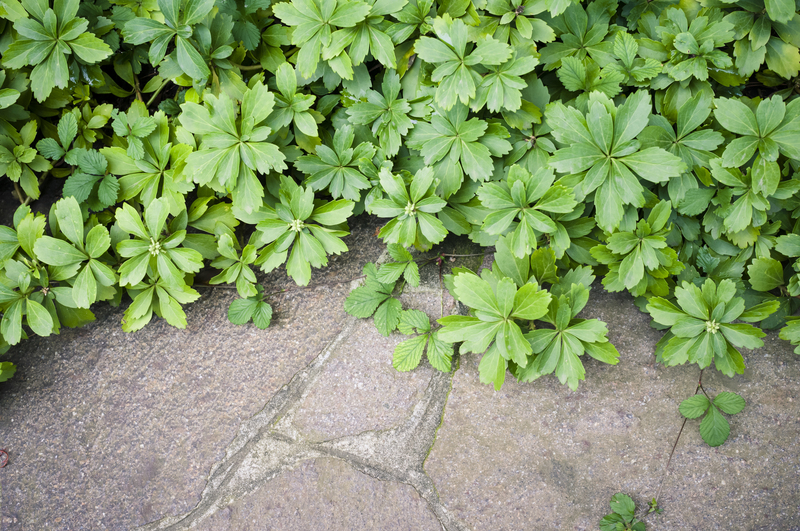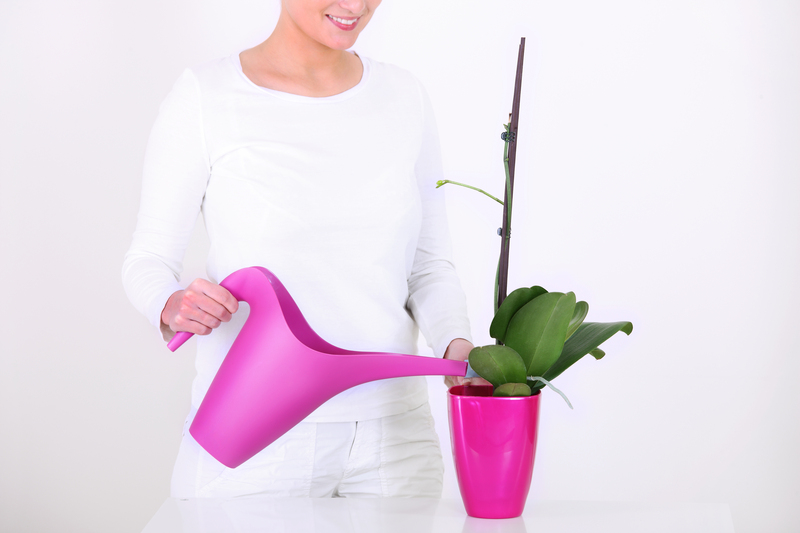Nurture Kids' Growth with a Fun Garden Design
Posted on 15/09/2025
Nurture Kids' Growth with a Fun Garden Design
Are you searching for creative and effective ways to support your child's development? One of the most rewarding approaches is to nurture kids' growth with a fun garden design. By transforming your backyard or balcony into an engaging, hands-on playground of nature, you foster your child's curiosity, responsibility, and emotional well-being. In this comprehensive guide, we'll explore how to develop a vibrant, interactive gardening space that will inspire children to learn, explore, and flourish.
Why Gardening is Essential for Children's Development
Gardening is not just about growing plants; it's about nurturing young minds. When kids take part in gardening, they engage in a powerful blend of educational, physical, and emotional growth. Here are just a few reasons why a child-friendly garden design is a winning investment in your child's future:
- Promotes Physical Health: Digging, planting, and watering provide great physical exercise for children, keeping them active and healthy.
- Teaches Responsibility: Caring for plants encourages kids to take ownership and become responsible for their living 'projects'.
- Encourages Curiosity and Learning: Observing plant life cycles, insects, and soil processes inspires scientific thinking and inquiry.
- Fosters Emotional Well-being: Time spent outdoors reduces stress, builds confidence, and enhances mood.
- Boosts Creativity: Designing and decorating their own gardening spaces lets kids express their ideas and personal flair.

Designing an Inspiring Garden Space for Kids
A fun kids garden design is all about imagination, comfort, and accessibility. The secret is creating zones that cater to their ever-changing interests, from edible plant beds to sensory play areas. Here's how to get started:
1. Choose the Right Location
Pick a garden spot that receives plenty of sunlight, is safe from hazards, and is easily supervised. Even a small balcony or courtyard can be transformed with planters, vertical gardens, and portable pots.
2. Involve Kids in Planning
One of the best ways to nurture kids' growth with a fun garden design is to invite their ideas and input. Sit together and:
- Discuss which vegetables, herbs, or flowers they want to grow
- Draw up a colorful, creative garden map
- Choose decorations, themes, or animal habitats to integrate
3. Select Kid-Friendly Plants
To ensure the garden remains fun and interactive for children, select plants that are:
- Easy to grow: Sunflowers, cherry tomatoes, carrots, lettuce, radishes, peas, and strawberries are resilient and forgiving for beginners.
- Fast-growing: Kids are more likely to remain interested when they can see quick results.
- Sensory-stimulating: Choose plants with various colors, scents, textures, and even sounds (like ornamental grasses rustling in the breeze).
- Safe and non-toxic: Always double-check that plants are child-safe and avoid those that may cause allergic reactions or are poisonous.
4. Add Playful, Themed Elements
Fun touches make the kids' garden an irresistible haven for play and discovery. Consider incorporating:
- Fairy gardens: Miniature houses, bridges, and figurines spark magical make-believe games.
- Bug hotels: Wooden structures filled with twigs and bamboo canes provide homes for ladybugs and bees.
- Colorful stepping stones: Painted footpaths or natural logs keep things vibrant and interactive.
- Mud kitchens: A small play kitchen or outdoor sink lets kids "cook" with soil, leaves, and seeds.
- Hideaways: Tepee tents, bean tunnels, or willow domes offer secret spots for reading or daydreaming.
Engaging Gardening Activities for Children
A dynamic garden experience for kids goes beyond planting seeds. The right activities make gardening a source of ongoing learning and fun. Here are some ideas:
Planting and Harvesting Edibles
Plant easy-to-grow veggies and fruits. Let children help with:
- Digging holes and sowing seeds
- Labeling plants with painted signs
- Tending plants through regular watering and weeding
- Picking ripe produce and tasting the results of their hard work
Nature-themed Craft Sessions
Nurture creativity by making:
- Pressed flower art for wall hangings
- Pine cone and twig sculptures
- Wind chimes with shells and beads
Sensory and Science Exploration
Help children connect with the natural world:
- Encourage touch and smell with herb patches (mint, basil, lavender)
- Offer magnifying glasses for bug and leaf observation
- Create a worm farm or compost bin
- Set up a simple weather station
Seasonal Gardening Fun
Celebrate every season:
- Spring: Sow wildflowers and decorate with painted stones
- Summer: Host a sunflower-growing competition
- Autumn: Collect leaves for crafty collages
- Winter: Feed birds with homemade seed cakes
Supporting Children's Growth Through the Garden
By nurturing kids' growth with a fun garden design, you're cultivating more than just plants. Here's how gardening boosts key areas of childhood development:
Physical Development
- Improved motor skills from digging, raking, watering, and harvesting
- Coordination and balance as kids navigate paths and play equipment
Emotional and Social Growth
- Teamwork and communication when planning the garden together
- Patience and resilience as plants grow over time
- Confidence as they see their efforts lead to real, tangible results
Intellectual Curiosity
- Discovering plant science, soil types, weather, and life cycles
- Problem-solving when faced with pests or unpredictable weather
- Recording growth progress through sketches, journals, or photos
Tips for an Inviting and Safe Children's Garden
A child-centric garden must be safe, accessible, and inviting. Consider:
- Paths wide enough for small children and wheelbarrows
- Raised beds or vertical planters for easy access
- No sharp tools or hazardous chemicals
- Fencing and gates to keep kids within boundaries
- Shade structures or umbrellas for hot days
- Seating areas for rest, reflection, or sharing stories
Frequently Asked Questions About Children's Garden Design
What age can children start gardening?
Kids as young as two or three can help with simple garden tasks, such as digging, watering, or picking herbs. As they grow, they can take on more responsibility and complex activities.
How can I keep children engaged in the garden year-round?
Plan for all seasons by rotating crops, crafts, and outdoor games. Install elements such as bird feeders and insect hotels for winter, and involve kids in planning and prep for the coming season.
What are the best plants for a child-friendly garden?
Look for easy-to-grow, fast-maturing plants with sensory appeal. Some favorites include:
- Sunflowers
- Snapdragons
- Radishes
- Strawberries
- Mint and basil
Can I create a kids' garden in a small space?
Absolutely: Use window boxes, hanging baskets, vertical gardens, or container gardens to maximize limited space and still give kids a full gardening experience.

Conclusion: Growing Happy, Healthy Kids in the Garden
Transforming your outdoor space into a fun, educational garden for kids is a truly rewarding endeavor. By nurturing children's growth through a playful and interactive garden design, you're cultivating a lifelong love for nature, learning, and healthy living. Every plant grown, insect discovered, or flower picked adds to your child's development and creates cherished family memories.
Start today by sketching your dream garden, picking up a packet of seeds, or simply stepping outside to explore what you can grow. Nurture your kids' growth with a playful garden design and watch them--and your garden--flourish together!
Further Resources
- Grow Your Own Playground: Books and websites about kids' gardening
- Gardening Clubs: Local groups often run special events for families
- Educational Kits: DIY garden kits for children, available at many stores
- Public Gardens: Explore and get inspiration from local botanical gardens with kids' sections
Let the adventure begin; dig in, get dirty, and grow together!
Latest Posts
Innovative Approaches to Guarding Gardens from Winds
Nurture Kids' Growth with a Fun Garden Design
Unlock the potential of your UK garden with 9 ground covers



